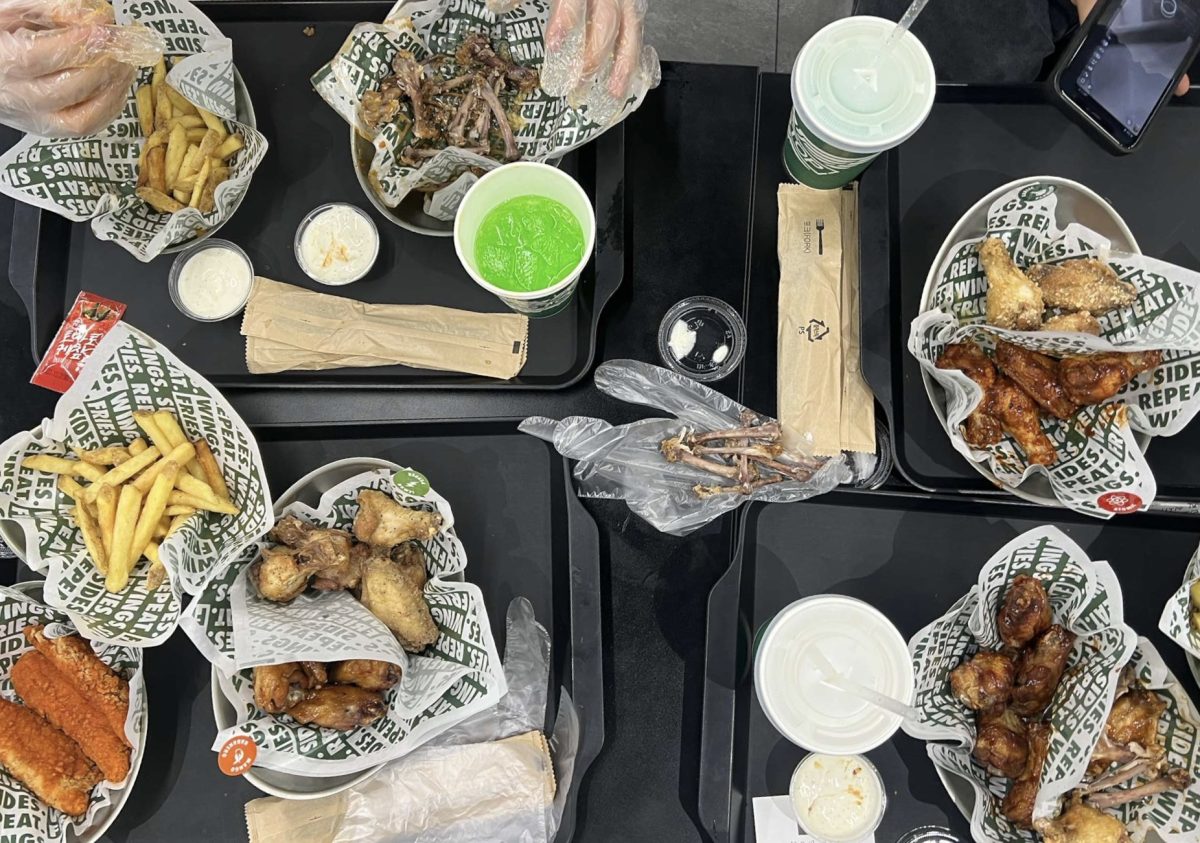Since the early 1980s, South Korea has been a popular destination for foreign food chains. Western food chains, including Burger King and KFC, arrived in Korea following the success of South Korean corporation Lotte’s burger franchise Lotteria. The popularity has persisted into present-day Korean interest in western culture remained strong and Korean consumerism steadily rose.
Western chains have established hundreds of franchises after the initial rush of food chains began in Korea. By 2022, McDonald’s and Burger King had 407 and 440 franchises respectively. Even more, the Korean burger market has been continuously growing in recent years. In 2014, the market was ₩2.1 billion, and by 2020, it reached ₩2.96 billion. With this ongoing growth, Korea has been a hotspot for more western franchises. In the past six-month period, for instance, US fast food chains Wingstop and Five Guys have launched in Korea.
“The arrival of these new chains has been really positive,” Alex Nam (12), AP economics student, said. “Many of these new chains have gained alot of positive attention since they’ve arrived. For example, when Five Guys arrived on June 26, different YouTubers and influencers generated alot of anticipation.”
South Korea has been seen as a potential testing market for companies wanting to expand to the Asian market as a whole. While industry officials cite this popularity to Korea’s fast-paced trends and large consumer market, the underlying factor behind high western food sales in Korea could be the obsession with western culture.
The Korean market first saw western culture in the 1950s, after the end of both Japanese colonialism and the Korean War. In this new era, traditional Korean culture was mixed with western ideas, bringing consumerism and commercialism to South Korea. Along with new ideals, new consumer opportunities like the food service business began in Korea, where the two main reasons behind this success were South Korean economic boom and a newfound appreciation for many things West.
First, the Korean economy grew stronger with the support of western countries and Japan’s help. This enabled not only the rich but the common people to afford eating out of their homes, creating a large consumer population.
Second, the Koreans had a glorified view of many aspects of western society, even their food. Specifically because the U.S. and western nations showed highly advanced technology and significant strength through WWII and the Korean War, many South Koreans looked favorably upon West-produced cultures. As a continuation, they also sought after these tastes. Unique condiments like ketchup and butter, common in fast food but not in traditional Korean cuisine, also caught the attention of many South Koreans.
“Also, the 1998 Olympics played a major role for Korean globalization,” Steven Nave. Asian Studies teacher, said. “The Olympics, along with the continued presence of American sphere of influence helped established these cultures.”
Coming back to modern day Korea, the same reasons from the late 1900s still play a key role. The ideas of consumerism and commercialism is fully incorporated into Korean society and many consumers today grew up in those same ideals.
In today’s society, the South Korean market is beneficial in a cultural way. “In 2023, South Korea is in the global spotlight for their own cultures like K-Pop and and traditional Korean food,” Dr. Nave said. “Now it’s a symbiotic relationship where both the western chains can gain from partaking in Korean cultures and Korea can experience new western cultures.”
This newfound popularity along with the continued appreciation for western culture leads to many people investing time and money into experiencing the unique food chains. “These food chains are popular is because they offer a glimpse into western culture even for those who can’t experience it,” Rachel Jeong (12), amateur food critic, said. “For me I’ve experienced the incoming food chains like Wingstop and Five Guys and I visited out of nostalgia. However, for many other Korean friends, they visited out of curiousity of popular Western chains.

